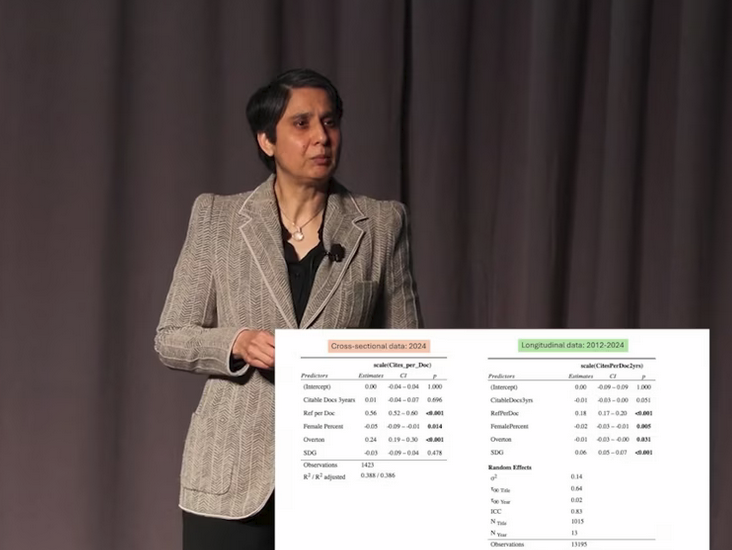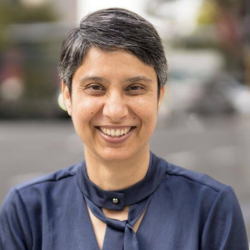

Looking for even more learning opportunities? With the Recordings Package registration option (fee required), you’ll get access to:
- all Global CBS Exchange sessions from 10 October
- plus all pre-recorded IGNITE submissions
- plus 15 curated recordings from the 2025 ACBS World Conference (including workshops, plenaries, panels, and symposia)
—available to watch anytime through 12 November.
Scroll down to explore the World Conference recordings that are included.
(Please note: continuing education credit is not available for any recorded viewing.)
2025 Featured Speakers:
Lisa Feldman Barrett | Rick Hanson | Baljinder Kaur Sahdra |
 |  | |
Michael Tomasello | Rhonda Merwin |
- Addressing Racial Bias with Contextual Behavioral Science: From Theory to Practice - Halpen, Parham, Jeudy, & Andrews (Panel)
Racial bias is deeply embedded in our language, interactions, and societal structures. This panel discussion will explore how Contextual Behavioral Science (CBS)—particularly Relational Frame Theory (RFT) and Acceptance and Commitment Therapy (ACT)—can help us understand and challenge these biases. RFT provides a theoretical framework for understanding the development of racial bias and informs various interventions, such as perspective-taking and mindfulness, including ACT. The discussion will highlight how these approaches can effectively combat racial bias and promote equity and psychological flexibility. A Q&A session will allow participants to engage with the panelists and explore strategies to implement in their efforts against racial bias.
Presenters: Lexy Halpen, M.S., BCBA, The Chicago School
Jewel Parham, Ph.D., M.S., BCBA, The Chicago School
Danielle S. Jeudy, Ph.D., BCBA-D, LBA, Navigate Behavioral Health
Meredith Andrews, Ph.D., The Chicago School
- Basic, Applied, and Conceptual Investigations into Contextual Behavioral Science and Neurodiversity - Tarbox, Chastain, Gonzalez, Szabo (Symposium)
Neurodiversity is a concept created by Autistic scholars that asserts that neurological functioning naturally comprises a vast continuum and that there is no correct or normal neurotype, anymore than there is any correct culture, gender, or race. In many respects, the concept of neurodiversity should find a natural home in contextual behavioral science (CBS) because the goals of CBS include understanding each unique person’s behavior-environment interactions, with the goal of helping humans thrive and to decrease suffering. This symposium brings together three papers that address various aspects of the intersection of neurodiversity and CBS. The first presentation sets the stage with a conceptual paper that articulates and discusses the foundational assumptions of neurodiversity and CBS, looking for points of connection and departure. The second presentation consists of a lab study looking at derived stimulus relations involved in social categorization, the likes of which constitute the behavioral foundation for stigma and othering. The third presentation consists of a randomized trial of an Acceptance and Commitment Therapy-based neurodiversity-affirming support group for parents of newly diagnosed Autistic children.
• How Neurodiversity Challenges Contextual Behavioral Scientists to be the Best Versions of Ourselves
Jonathan Tarbox, Ph.D., University of Southern California and FirstSteps for Kids
Neurodiversity is a concept created by Autistic scholars that asserts that neurological f unctioning naturally comprises a vast continuum and that there is no correct or normal neurotype, anymore than there is any correct culture, gender, or race. Furthermore, the concept of neurodiversity was created in the context of the larger disability rights movement and acknowledges neurodivergent people as a group who have been historically and currently oppressed. This conceptual paper will discuss founding assumptions of neurodiversity and the neurodiversity movement, articulate and discuss criticisms of applied behavior analysis and psychology from the neurodiversity perspective, and discuss points of connection and departure between these issues and the foundational assumptions and goals of contextual behavioral science. We will make the case that the principles of neurodiversity are completely consistent with the foundational philosophical assumptions of behavior analysis and contemporary contextual behavioral science, although not necessarily how these fields have actually been practiced. We will conclude with discussing how the neurodiversity movement is influencing ABA and contextual behavioral science to be better and more consistent versions of themselves.• Exploring Social Categorization: Stigma, Equivalence, and Implicit Attitudes
Amanda N. Chastain, BCBA, University of Illinois, Chicago
Mark R. Dixon, University of Illinois, Chicago
Grady McDonnell, University of Illinois, Chicago
The equivalence model of social categorization provides a framework for studying social stereotyping (Watt et al., 1991). Research has shown resistance to equivalence class formation between culturally opposing stimuli, with little progress in identifying the mechanisms driving this resistance. Prior learning history is of ten cited but remains underexplored in maintaining stereotype -consistent relational networks. Across three experiments with adults aged 18 to 65 years, we use the Implicit Association Test (IAT), a measure of implicit attitudes linked to derived relational responding (Cummins et al., 2018), to assess the strength and valence of pre-existing relational networks and their impact on equivalence performance in stereotype-consistent and stereotype-inconsistent categorizations of neurotypical and neurodivergent social categories. We also examine how prior learning history influence relational network expansion using a stimulus blocking procedure. Preliminary data suggest that pre-existing biases contribute to both resistance to equivalence class formation and relational network expansion via stimulus blocking. This research enhances understanding of how prior relational histories shape social categorization and may inform behavior analytic strategies f or reducing implicit bias.• Support and Training on Autism for Newly Diagnosed Families (STAND): Development and Testing of a rapid response, ACT-based parent intervention
Cassin Gonzales, University of Southern California
Alexandra Raport, University of Southern California
Jonathan Tarbox, University of Southern California
The months following a child’s new autism diagnosis are characterized as a high stress period in which parents struggle to f eel assured on how to best support their child and family. The Support and Training on Autism for Newly Diagnosed Families (STAND) ACT-Based, neurodiversity-affirming, virtual parent group was developed to support families with psychological adjustment to the diagnosis, navigation of the autism care system, and understanding and responding to child behavior. The STAND randomized control trial recruited 27 parents of children (age 2.5 – 6 years) who were diagnosed with autism in the previous 12 months. Participants completed qualitative interviews and standardized measures at three timepoints over 22 weeks. Half of the participants were randomly assigned to complete the 8-week STAND program and the other half completed the program following the last data collection. Discussion will include, a) a multi-method informed description of parent experiences in the post diagnostic transition period, b) a description of the community-engaged development of the STAND program, and c) the results of efficacy and acceptability testing of the STAND program.Discussant: Thomas G. Szabo, Ph.D., Vanderbilt University
- Center Stage: Drama Therapy Meets ACT - An Experiential Workshop - Wood & Morris (Workshop)
Drama Therapy, a therapeutic modality rooted in theatre, storytelling, and performance techniques, offers uniquely adaptable interventions that can significantly enhance the delivery of Acceptance and Commitment Therapy (ACT). This workshop explores the natural synergy between these approaches, particularly through Drama Therapy's use of embodied metaphor and interpersonal experiential techniques. Participants will learn how to integrate key Drama Therapy skills within an ACT framework, focusing specifically on role-based interventions that amplify psychological flexibility and values-based action.
The workshop provides hands-on experience with drama therapy warm-ups before introducing a powerful technique: guiding clients to embody supportive figures from their lives (including friends, family members, or even pets). Through practical demonstration and experiential learning, participants will master conducting strength-based interviews with these enacted supportive figures, creating a unique perspective-taking opportunity that enhances psychological flexibility and deepens personal insight. This innovative integration offers therapists new tools for helping clients access their resources and values through embodied experience.
Presenters: Kathryn L Wood, LCPC, P-RDT, True North Therapy and Training
Miranda Morris, Ph.D., True North Therapy & Training
- Co-Design for Culturally and Contextually Sensitive ACT and Behavioral Therapy Adaptation with Diverse Populations - Werner, Bricker, Johns, Gowan, Arch (Symposium)
Co-design has great potential to facilitate culturally and contextually sensitive adaptations of ACT and behavioral therapies. This panel will discuss the core concepts of co-design and how those have been applied to create culturally/contextually sensitive adaptations to address what matters most to those for whom the intervention is intended. The first speaker will be conceptual, presenting core co-design concepts and considerations/strategies for co-design in this context. Three additional speakers will describe research in which they co-designed culturally and contextually sensitive adaptations of ACT and behavioral therapies for diverse populations, the resulting interventions, and the impact of co-design on adaptation. The second speaker will describe a co-design process that engaged Black breast cancer survivors with obesity to co-design a weight loss/wellness intervention. The third speaker will present on co-designing an ACT-based stress management smartphone app with breast cancer survivors. The fourth speaker will describe a participatory co-design process to adapt an ACT-infused exposure therapy for diverse socially anxious undergraduates. Overall, this panel will provide conceptual depth and practical considerations for culturally and contextually sensitive intervention co-design.
• Key principles of co-design for culturally and contextually sensitive adaptations of behavioral
interventions
Nicole E. Werner, PhD, Vanderbilt University Medical Center
Co-design is about designing with end users, rather than designing f or them. In terms of behavioral interventions, co-design centers the expertise of the people and communities that will ultimately engage with the intervention. Importantly, the expertise of these ‘end users’ is centered throughout the full design process—from identifying the problem, ideating solutions, creating the solution, as well as implementation and evaluation of the solution. By applying a co-design approach to behavioral intervention design, the resulting interventions are more likely to address the challenges that are most meaningful to the individuals and communities who will be using those interventions and f or the most optimal solution to be designed. This presentation will describe the three key tenets of co-design: democratization, generativity, and sustained engagement. This presentation will also discuss how to apply these tenets to co-design culturally and contextually sensitive adaptations of behavioral interventions highlighting key considerations, challenges, and strategies f or sharing power, lifting the creativity intrinsic to lived experience, and building lasting partnerships.• Co-Design of a Culturally Sensitive Weight Loss/Wellness Program for Black Breast Cancer
Survivors with Obesity: Results from a Mixed Methods Pilot Study
Shelley A. Johns, Indiana University School of Medicine; Regenstrief Institute, Inc.
Misty A. W. Hawkins, Indiana University School of Public Health Bloomington
Black breast cancer survivors (BCS) have significantly higher rates of obesity and mortality compared to BCS from other racial groups. Given disparities in access to culturally -sensitive care, our team engaged 5 Black BCS with obesity to co-design a weight loss/wellness intervention f or this population (Stage 1A). Co-designers identified barriers to achieving a healthy weight and potential solutions to inform development of a weight loss/wellness program that included 8 weekly group sessions facilitated by a Black interventionist. We then conducted a Stage IB pilot of the co-designed intervention with 12 Black BCS with obesity. High attendance, retention, and satisfaction rates supporting intervention feasibility/acceptability and results on weight and body composition will be presented. Post-intervention qualitative interviews were conducted and thematically analyzed. Participants described the program as transformative, highlighting its provision of practical tools and emotional support, while fostering a sense of community and empowerment. Participants suggested program expansion to 12 sessions and the addition of stretching/physical activity to each session. Findings underscore the impact of co -design in the development of culturally-sensitive interventions for Black BCS.• Expanding Access to Care: A Co-Designed ACT mHealth App for Breast Cancer Survivors
Tayler M. Gowan, Department of Psychology, Indiana University Indianapolis
Evan J. Jordan, PhD, Indiana University School of Public Health Bloomington; Center for Health Services Research, Regenstrief Institute, Inc.
Betsey Zenk Nuseibeh, MM, MEd, Indiana University School of Public Health Bloomington; Center for Health Services Research, Regenstrief Institute, Inc.
Shelley A. Johns, PsyD, HSPP, ABPP, Indiana University School of Medicine; Center for Health Services Research, Regenstrief Institute, Inc.
Breast cancer is the most prevalent cancer worldwide, affecting over 7.8 million women. Despite a 91% five-year survival rate, breast cancer survivors (BCS) experience elevated stress, anxiety, and depression post-treatment. Limited mental health care access highlights the need f or accessible interventions. This study used co-design methods to develop an Acceptance and Commitment Therapy (ACT) mobile health app to reduce psychological distress in BCS. Phase 1 involved five user -centered
design sessions over three months with five BCS, three ACT practitioners, and two user -design experts. Sessions were transcribed and qualitatively analyzed. Thematic analysis revealed key stressors, preferred ACT exercises, and desired app characteristics that will be described. Phase 2 involved three cohorts of 5 BCS who used the app with an integrated heart-rate variability monitor that alerted users to engage with the app when stress was detected over three weeks. Phase 2 app acceptability and usability scores will be presented, along with results from qualitative interviews that have guided iterative app refinements. Phase 3 will pilot-test app effects on key distress outcomes.• Participatory Co-Design of a Contextually Sensitive Exposure Intervention for Socially Anxious
Undergraduates
Joanna J. Arch, Ph.D., University of Colorado Boulder
Elizabeth T. Slivjak, University of Colorado Boulder
Alane S. Burger, University of Colorado Boulder
Lauren B. Finkelstein, University of Colorado Boulder
Mateo A. Chavez, University of Colorado Boulder
Contextual behavioral science and participatory co-design approaches both provide compelling frameworks f or creating contextually-sensitive interventions. Social anxiety is one of the most common mental health challenges with one of the lowest treatment-seeking rates, and thus stands to benefit from contextually sensitive approaches that reduce barriers to care. Over the past several years, we have collaborated with university student stakeholders to reduce barriers to seeking and receiving help for social anxiety by co-designing a 3-part workshop intervention founded on self -compassion and exposure strategies. The co-design process led to sensitive tailoring of intervention content and delivery format to the lived experience of diverse socially anxious undergraduates. Workshops are led by graduate students and undergraduate students who completed the workshop previously. We will share insights gleaned from the student co-design process and present acceptability and feasibility findings from the first 6 cohorts of workshop participants.Discussant: Jonathan B. Bricker, Ph.D., Fred Hutch Cancer Center
- Growth 2.0: Agency, Individuality, and Positive Neuroplasticity to Develop durable Psychological Resources - Hanson (Plenary)
Mental health professions often use a Growth 1.0 model in which people are treated like passive vessels into which information and experiences are poured – with little respect for individual differences – in the hopes that something will stick.
For some it does – yet many report mild or fleeting gains at most. And over the past several decades, there has been little or no improvement in average response to treatment. With new theories, methods, and research, we may have gotten better at helping people to have particular experiences, but as a profession we don’t seem to have gotten better at helping our clients to learn from them in lasting ways.In this fast-paced, sometimes experiential, and very practical presentation, we’ll explore evidence-based methods in a Growth 2.0 model in which people are active agents in the durable neuroplastic “internalization” of their experiences of inner strengths. Then in both daily life and structured interventions, they have a wonderful power to grow the good that lasts inside themselves – including to benefit other beings.
Presenter: Rick Hanson, Ph.D., UC Berkeley's Greater Good Science Center
- How ACT/RFT/FAP Make a Difference for Psychiatrists During Brief, Medication Focused Interactions - Törneke, Pavlatos-Delavoye, Sha, Ryst, Kohlenberg, Fitzgerald (Panel)
ACT/RFT and FAP are part of the didactic and supervision experiences of many psychiatry residents, who ultimately work in settings that are primarily medication based.
This panel will consider the following questions:- How do you navigate managing symptoms with medications and the ill effects of emotional avoidance? How do you balance this with valued living?
- When is symptom reduction a valued outcome in and of itself?
- How do you navigate the patient’s agenda to feel less pain with issues of living well in life?
- How has learning about ACT/RFT/FAP changed how you personally manage discomfort in session and perhaps help you be more courageous in session and with clinical consultation or supervision?
- How has ACT/FAP impacted you, personally, and has that impacted your practice?
Discussant: Niklas Törneke, M.D., NT Psykiatri
Nicole Pavlatos-Delavoye, M.D., Inspire Sierra
Steven Sha, DO, Providence Portland Medical Center
Erika Ryst, M.D., Nevada Center for Excellence in Disabilities, College of Education and Human Development, University of Nevada-Reno
Barbara S. Kohlenberg, Ph.D., University of Nevada Reno School of Medicine
Joshua B Fitzgerald, M.D., University of Nevada, Reno School of Medicine
- The Idionomics Revolution: Rethinking Evidence in Evidence-Based Psychological Care - Sahdra (Plenary)
On average, ACT-related processes like acceptance and valued action promote well-being. However, the "normal” effect offers limited insight, and viewing individual differences merely as statistical "error" around a group mean diminishes the rich diversity of human experience. Despite this, our evidence-based "best practices" still rely primarily on group means from randomized controlled trials to guide clinical practice. How can we move away from deficit-focused models of mental "disorders" and beyond methods that measure diverse people against statistical norms? How can we develop evidence that honors human diversity and gives equal weight to individual experiences alongside group-level findings to advance personalized psychological care? This talk will showcase pioneering research in idionomics that bridges the gap between group-level findings and individual experiences, offering fresh perspectives on ACT processes and inviting us to reconsider what constitutes "evidence" in evidence-based psychological care.
Presenter: Baljinder K Sahdra, Ph.D., Australian Catholic University
- Integrating ACT and Health at Every Size (HAES) to Transcend Body and Weight Concerns - Pegrum & Miller (Workshop)
We live in a societal context whereby body size is commonly fused with personal worth, driving the chase for a physical ideal that can overshadow other life pursuits. This societal context of diet culture shapes the individual's experience of their body; often, the body becomes labelled as ‘the problem’ to be fixed and changed. What can entail is an entanglement with weight and body concerns and an increasing vulnerability to cycles of yo-yo dieting, eating disorders and various other physical and psychological issues.
The Health at Every Size (HAES) movement challenges these norms and encourages individual transcendence of cultural paradigms around body and weight. When combined with Acceptance and Commitment Therapy (ACT), HAES principles can foster body acceptance and values-driven living, even in the face of weight discrimination. In this interactive and experiential workshop, HAES and ACT principles will be integrated, offering techniques for cultivating body acceptance and enhancing value clarification to empower clients to accept their bodies and live in accordance with their values, even in the context of weight discrimination.
Presenters: Sarah Pegrum, Ph.D., Pegrum Therapy & Training, &
Racheli Miller, Ph.D., The Compassion Practice
- Interbehaving about Interbehaviorism - Andersland, Sandoz, Fryling, Kellum, Parrott Hayes (Panel)
A renewal and expansion of interest in interbehaviorism and interbehavioral psychology has been observed within recent years. Interbehavioral philosophy and psychology are pertinent to the evolution of Contextual Behavioral Science (CBS) across investigative, interpretive, and applied domains (Finn & Barnes-Holmes, 2021; Hayes & Fryling, 2021; Sandoz, 2021). Pertinence does not, however, guarantee accessibility or actionability. CBS researchers and clinicians may find themselves
interested in interbehavioral ideas, but limited by questions about how to apply these ideas to their work. Question asking and answering is a process which can evolve how particular instances of language function, both as aspects of context and currents of behavior, bridging interpretive systems and promoting the emergence of understanding. In other words, asking questions and hearing answers can expand our behavioral repertoires. We’ve solicited questions about interbehavioral psychology from our communities to promote this continued evolution. And - maybe you have questions and curiosities of your own! In this panel, the speakers will discuss and respond to questions about interbehaviorism and interbehavioral psychology, and their relationship to CBS.Chair: Matt D Andersland, M.S., The University of Memphis
Emily K Sandoz, Ph.D., BCBA, Louisiana Contextual Science Research Group, UL Lafayette
Mitch Fryling, Ph.D., California State University, Los Angeles
Kate Kellum, Ph.D., University of Mississippi
Linda J Parrott Hayes, Ph.D., University of Nevada, Reno
- Mastering 'Creative Hopelessness': Compassionately Undermining Clients' Unworkable Control Strategies in ACT - Kjelgaard (Workshop)
Many clinicians encounter challenges when implementing the process and practice of creative hopelessness in ACT. They may struggle with their own reactions to clients' responses, worry about its impact on clients, or become entangled in control agendas, leading to discussions that undermine the intervention's effectiveness. Creative hopelessness is designed to help clients recognize the futility of their current control strategies and open up to new, value-driven behaviors. However, if not delivered with clarity and compassion, its function can be lost, shifting the focus to content rather than process. This highly practical and experiential workshop will guide clinicians through the nuanced application of creative hopelessness, emphasizing compassionate undermining of clients' unworkable control strategies. Through roleplays and demonstrations, participants will learn flexible and fluent methods to incorporate this process into sessions. Additionally, clinicians will be encouraged to reflect on their own processes and how these influence therapeutic outcomes. By engaging in these experiential activities, attendees will enhance their skills in delivering creative hopelessness interventions, ultimately fostering more effective client engagement and progress in therapy.
Presenter: Rikke Kjelgaard, M.Sc.
- Origins of Human Cooperation - Tomasello (Plenary)
Human beings are biologically adapted for culture in ways that other primates are not. Uniquely human forms of social understanding and cultural learning emerge in human ontogeny at around one year of age as infants begin to engage with other persons in various kinds of joint attentional activities, including linguistic communication. Comparisons to the social cognition of apes helps to specify in more detail the nature of uniquely human social cognition.
Presenter: Michael Tomasello, Ph.D., Duke University
- Realizing the Potential of CBS to Alleviate Human Suffering - Merwin (Plenary)
CBS is distinct from other scientific approaches. The face of modern contextualism, behaviors are understood as acts in historical and situational context, and the explicit aim of analysis is the betterment of the human condition via prediction and influence of behavior using principles and processes with precision, scope and depth. High quality CBS research can be difficult to
conduct. However, technological advances provide new tools (or capabilities) for conducting research that is multilevel, multidimensional, pragmatic and process-based - in traditional (e.g., labs) and nontraditional research settings (e.g.,
clinics, home environments).This address will draw a line through a program of basic and applied research that leverages modern technology within a CBS framework. Studies will center on two clinical problems with extremely high mortality rates: anorexia nervosa and T1DE (disordered eating in type 1 diabetes). While the research content focuses on suffering that arises from having an adversarial relationship with the body (or the body’s signals), the broader goal will be to outline a progressive CBS research strategy to alleviate human suffering whatever form it takes.
Presenter: Rhonda Merwin, Ph.D., Duke University School of Medicine
- RNT We Still All Imposters?! Practical Psychological Flexibility for Impostor Phenomenon - Larsson (Workshop)
Impostor Phenomenon (IP) is a common challenge experienced by individuals, irrespective of their accomplishments. It involves persistent self-doubt and the fear of being exposed as a fraud, despite evidence of competence. This workshop offers practical tools for addressing IP, guided by the Acceptance and Commitment Therapy for Repetitive Negative Thinking (ACT RNT) model and its comprehension around negative selfing and worrying/ruminating.
This session combines academic knowledge with shared personal and clinical experiences. Both presenters and attendees will share insights, highlighting that even accomplished individuals have grappled with IP. Participants will explore the ACT RNT model, which synthesizes ACT and RFT principles, providing guidance for embracing defusion, self -acceptance, and personal growth.
Presenter: Andreas Larsson, M.Sc., Ph.D., Lic Psychologist, Mid Sweden University
- Three Lessons about the Brain - Feldman Barrett (Plenary)
This address will describe three unintuitive insights about brain architecture and the corresponding computational affordances from the science of emotion: (1) Your brain’s most important job is efficiently coordinating and regulating the systems of your body (2) predictively (3) to construct signal ensembles that create guide your action and create lived experience. This research approach offers an unintuitive but principled approach that unifies a variety of psychological phenomena into a common explanatory framework with a shared vocabulary for theory building and treatment.
Presenter: Lisa Feldman-Barrett
- Under Pressure: Help high-achieving clients live intentionally & flexibly, in a culture that glorifies productivity - Sorensen & Freedman-Diamond (Workshop)
Do your clients struggle with eating disorders, perfectionism, chronic stress, and/or or burnout? In a culture that glorifies hustle and insists it’s possible to look flawless while doing it all, it’s no wonder so many people are under pressure! (Freedman-Diamond, 2024; Sorensen, 2024; Grant, A., 2008; Jack & Dill, 1992) This workshop will explore the contextual effects of the dominant culture in keeping clients stuck chasing unattainable ideals, and help clinicians work effectively with these clients by integrating contextual behavioral science with the Intuitive Eating framework. Participants will learn
evidence-based strategies for helping clients to 1) identify internalized cultural narratives that are driving unhelpful behavior patterns, 2) recognize the experiential control cycle that leads to burnout and perfectionism, 3) differentiate rule-bound vs. flexible and values-driven motivations, 4) intentionally turn toward values and bodily signals (instead of external pressure) for guidance, and 5) set effective boundaries - with the outside world and their own inner critic - to protect their wellbeing
from pressure to achieve and produce.Presenters: Debbie Sorensen, Ph.D., Private Practice, Denver Colorado &
Paula Freedman-Diamond, Psy.D., HumanKind Psychological Services
- IGNITES - 5 minute presentations that will inspire you!
Under Construction
ACT in Context: In-Situ Psychological Flexibility and Individualizing the Hexaflex
Presenter: Kathryn SterrenbergFlexibility is a Superpower: Gamifying In-Situ Flexibility Training for Children
Presenter: Katelyn FrahmFrom Passion to Performance: Implementing DNA-V for an Adolescent Ballerina Facing Professional Training
Presenter: Matteo ChiesMeasuring What Matters: A Process-Based Approach to Personalised Care
Presenter: Farrah GulamoydeenMind over Body or Body over Mind?
Presenter: Neetika ThapanOut of the Lab: Supporting Flexible Learning in Autistic Children using Relational Density Theory
Presenter: Jordan BelisleTime to Pivot: Setting the Foundations for Relational Framing in Young Children
Presenter: Alyssa BeechlerThese pre-recorded presentations are included as part of the Global CBS Exchange.



